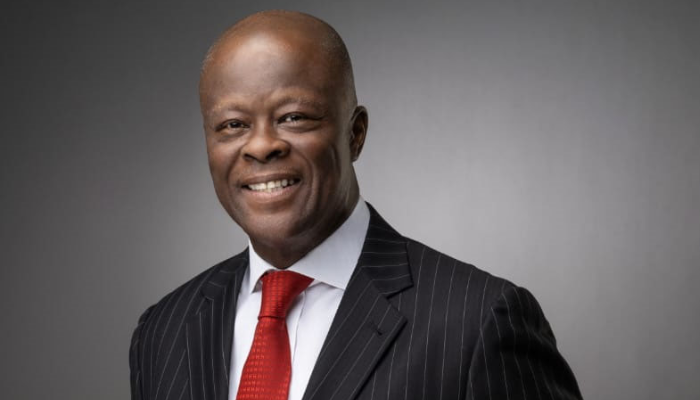The federal government plans to refinance its expensive debt in a bid to lower growing debt service obligations and reduce the overall cost of borrowing, according to Wale Edun, minister of finance and coordinating minister of the economy.
Speaking at the 55th Annual Conference of the Institute of Chartered Accountants of Nigeria (ICAN) in Abuja on Tuesday, Edun said the refinancing effort is part of a broader fiscal strategy aimed at restoring stability, unlocking investment, and delivering inclusive growth under President Bola Tinubu’s economic reform agenda.
“Efforts are underway to refinancIe expensive debt and thus reduce both the debt service cost and the cost of borrowing,” Edun said. He noted that the country’s debt servicing burden had surged sharply, with treasury bill rates rising from 8 percent in 2023 to nearly 24 percent, and external debt servicing ballooning from a budgeted ₦2.7 trillion to ₦6.7 trillion in 2024.
The minister said the decision to refinance costly obligations forms part of a wider set of initiatives designed to improve expenditure efficiency, boost revenue, and attract private sector capital.
These include formalising the informal economy, expanding the tax base through a new tax reform law, automating revenue collection, and optimising the government’s balance sheet.
Nigeria, he noted, is seeing early signs of macroeconomic recovery driven by recent reforms. “Between April and June 2025, our economy’s output grew by 4.23 percent year-on-year, up from 3.48 percent in Q2 2024,” he said.
He added that the industrial sector had nearly doubled its growth rate to 7.45 percent, reflecting improved investor confidence, more stable exchange rates, and falling inflation, which declined to 20.12 percent in August from 21.88 percent in July.
“These are not just numbers. They are signals of a nation regaining its economic footing and confidence,” Edun stated.
Read also: IHS CEO urges bold public-private push for Nigeria’s digital leap
But while the government is seeing fiscal gains, it is also facing rising expenditure pressure. Edun said the high cost of debt service threatens to crowd out essential investments in infrastructure and social services. As a response, the administration is turning to a combination of debt restructuring and private sector mobilisation to close funding gaps.
Part of that strategy includes infrastructure initiatives like the Highway Development and Management Initiative (HDMI) to attract private investment into roads and rail, as well as Project Bridge, a $2 billion World Bank and AfDB-backed project to expand Nigeria’s fibre optic network by 90,000 kilometres. The goal, according to Edun, is to achieve 70 percent internet penetration nationwide and close Nigeria’s digital infrastructure gap.
He also cited Mission 300, a $32 billion programme supported by development partners to increase energy access and ensure long-term industrial competitiveness. “Public resources are limited, and the complementary role of the private sector cannot be overemphasised,” he said.
In the education sector, Edun highlighted the Nigerian Education Loan Fund (NELFUND), which has supported over 418,000 students across 229 institutions, and in healthcare, the government is launching digital and value chain initiatives to improve access and quality of care.
He urged ICAN and the accounting profession to play a central role in the reform effort, just as he called for the development of a rating model for accounting firms to ensure transparency and promote excellence.
In his address, President Tinubu spotlighted key policy interventions his administration has rolled out so far to stabilise the economy and restore investor confidence.
Chief among them is the Nigerian Tax Reform Act of 2025, which modernises tax administration, broadens the tax base, and eliminates overlapping taxes to foster a more business-friendly environment. “It will enhance compliance through digital platforms and strengthen taxpayer rights,” he noted.
Represented by Shamseldeen Babatunde Ogunjimi, Accountant General of the Federation (AGF), Tinubu reaffirmed the government’s decision to abolish multiple exchange rates, describing it as a crucial move that has eliminated arbitrage and improved investor predictability.
He also underscored the pivotal role of collaboration between government, professional bodies, and the private sector in entrenching transparency and driving inclusive growth. He urged every Nigerian, particularly the accounting fraternity, to adopt the principles of sustainability, transparency, and prudence.
He challenged accountants to be the “custodians of trust” and “guardians of the figures that either build or erode economic resilience,” noting that the strength of public institutions hinges on their professionalism.
Echoing the federal government’s reform message, Haruna Yahaya, ICAN President said the country stands at a defining moment where aligning reforms and building resilience are no longer optional.
“Nigeria must choose between a J-curve recovery or L-curve stagnation,” he warned, citing bold steps like fuel subsidy removal and FX unification. Yahaya outlined ICAN’s five-pronged reform alignment strategy, including a quarterly reform dashboard, sustainability assurance training, and support for MSMEs.
He said, “What gets measured gets done; what gets published gets believed,” stressing the accounting profession’s central role in turning Nigeria’s reform ambitions into measurable, people-focused outcomes.”

